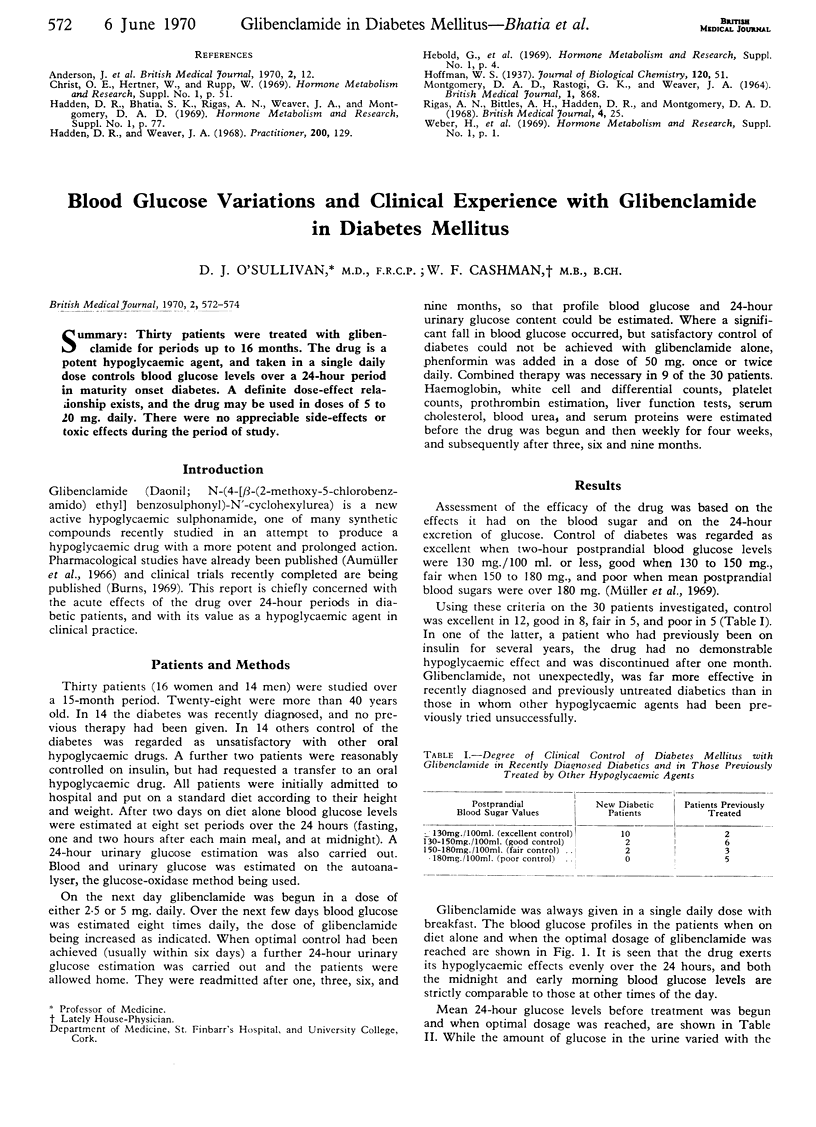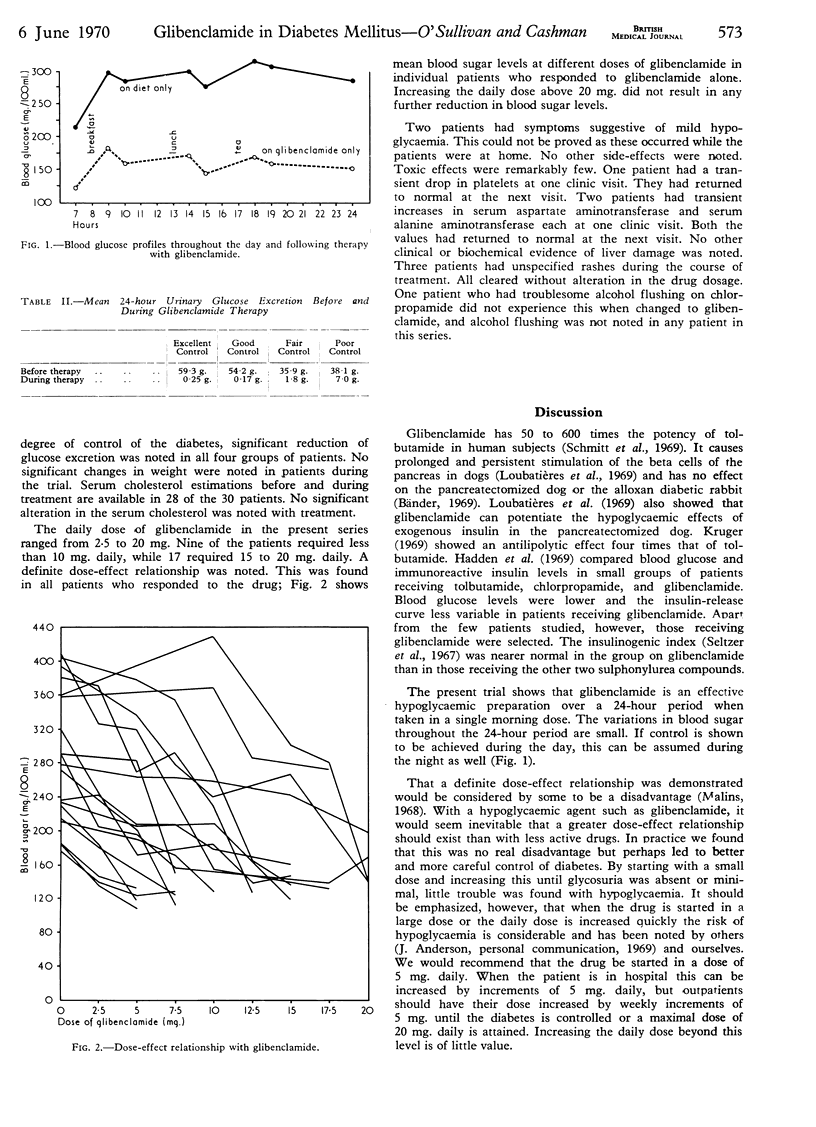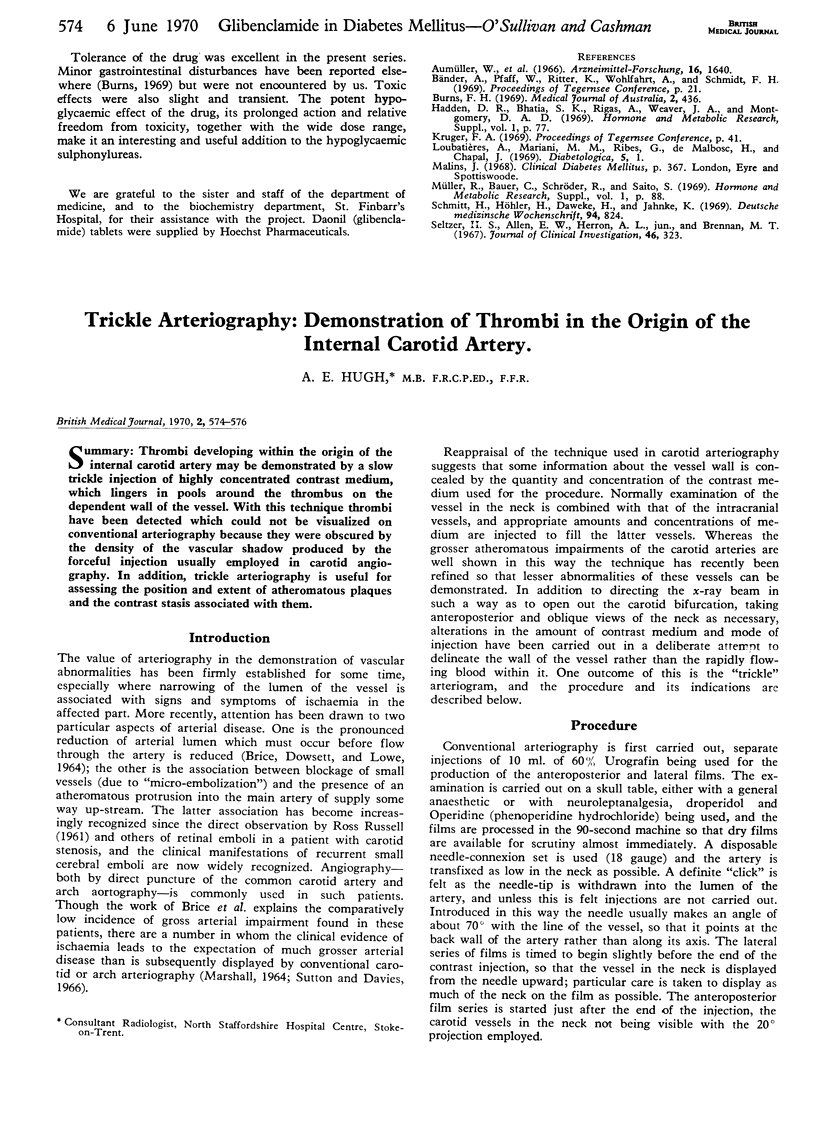Abstract
Thirty patients were treated with glibenclamide for periods up to 16 months. The drug is a potent hypoglycaemic agent, and taken in a single daily dose controls blood glucose levels over a 24-hour period in maturity onset diabetes. A definite dose-effect relationship exists, and the drug may be used in doses of 5 to 20 mg. daily. There were no appreciable side-effects or toxic effects during the period of study.
Full text
PDF


Selected References
These references are in PubMed. This may not be the complete list of references from this article.
- Aumüller W., Bänder A., Heerdt R., Muth K., Pfaff W., Schmidt F. H., Weber H., Weyer R. Ein neues hochwirksames orales Antidiabeticum. Arzneimittelforschung. 1966 Dec;16(12):1640–1641. [PubMed] [Google Scholar]
- Schmitt H., Höhler H., Daweke H., Jahnke K. Klinische Untersuchungen zur Wirksamkeit des neuen oralen Antidiabetikums Glybenclamid (HB 419) Dtsch Med Wochenschr. 1969 Apr 18;94(16):824–829. doi: 10.1055/s-0028-1111125. [DOI] [PubMed] [Google Scholar]
- Seltzer H. S., Allen E. W., Herron A. L., Jr, Brennan M. T. Insulin secretion in response to glycemic stimulus: relation of delayed initial release to carbohydrate intolerance in mild diabetes mellitus. J Clin Invest. 1967 Mar;46(3):323–335. doi: 10.1172/JCI105534. [DOI] [PMC free article] [PubMed] [Google Scholar]


